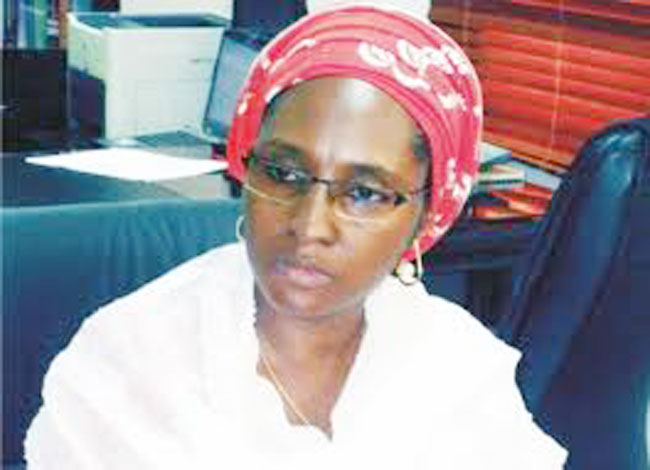By Jeph Ajobaju, Chief Copy Editor
Nigerian crude is trading well, for now.
And Abuja is delighted and says it has no plans to remove subsidy on petroleum products, despite advice from the International Monetary Fund (IMF) for the treasury to eliminate them to protect public finances.
“It’s still work in progress … there is no intention to remove the fuel subsidy at this time,” Finance Minister Zainab Ahmed told reporters in the capital city.
Nigeria – Africa’s biggest economy, top oil producer, and world’s sixth largest exporter – heavily subsidises fuel and relies on imports for the bulk of its 30 million litres of daily domestic demand.
Imports beef up low output from public refineries that are hardly maintained.
Ahmed said she agreed with the IMF’s advice on subsidies but Nigeria first needs to take steps to cushion the effect of their removal on the population.
“We have to find a formula that will work for Nigeria. And until we do that, we should not be contemplating removing the subsidy.”
Nigerian crude sought in Europe
Nigerian crude oil is receiving some support from favourable refining margins in Europe with around 15-20 cargoes remaining for May loading.
Turkey’s Tupras issued a buy tender for three cargoes for Bonny Light, Forcados or Escravos crude for loading between May 25 and June 10.
Reuters reports that major Nigerian grades, Bonny Light and Qua Iboe, continue to be indicated at or above a $2 premium compared to dated Brent, which buyers have been reluctant to meet for weeks.
But Nigerian light grades are well suited to be refined into gasoline and with European gas cracks at their highest levels since August, differentials could be supported.
Labour, activists support subsidy
Oil exports account for 95 per cent of Nigeria’s foreign exchange earnings.
Nigeria emerged from a recession in 2017 caused by low oil prices and a currency crisis.
Growth remains fragile as private sector credit expansion remains weak and Abuja is trying to mobilise funds to spend its way out of the sluggish growth.
The IMF says Nigeria needs to maintain good public finances and wants fuel subsidy removed to channel more funds into public infrastructure, such as schools hospitals, roads and schools.
But Labour and other social activists counter-argue that funds saved from subsidy removal will be stolen by government officials, so it is better to retain subsidy that puts money in the pocket of the man on the street.
Arrest warrants for ex-ministers
To buttress that, a Federal High Court has issued arrest warrants for two former ministers and an Eni manager over the sale of offshore oilfield OPL 245 by Malabu Oil and Gas in 2011.
The Economic and Financial Crimes Commission (EFCC) announced on twitter that former Petroleum Minister, Dan Etete; former federal Attorney General, Mohammed Adoke; and an Eni Manager, Roberto Casula; “are to be arrested anywhere they are found.”
The EFCC said this followed the court ruling.
It claimed that the defendants had repeatedly failed to appear before the Abuja court and that the Nigerian police, INTERPOL and any other law enforcement agencies would have the authority to arrest them.
Eni called the move “disproportionate and detrimental” to the rights of its manager.
“These warrants seem to have originated from the failure by the Nigerian judicial authorities to notify and serve the pending proceedings to the Eni managers as per international procedure for the last two years,” Eni said in a statement.
The $1.3 billion deal has spawned legal cases spanning several countries and involving Nigerian government officials and senior Eni and Shell executives.
Eni and Shell jointly acquired the field from Malabu, which was owned by Etete.
An ongoing case in Milan alleges that about $1.1 billion of the total was siphoned to agents and middlemen.
The Milan court has already convicted middlemen Emeka Obi, a Nigerian citizen, and Italian Gianluca Di Nardo, of corruption.
Shell and Eni have denied all wrongdoing.












